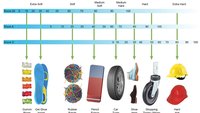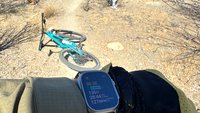What:
0: Pay off any high interest debts and establish emergency fund based on your risk tolerance
1: Max out your contributions to your TFSA
2: Contribute to your RRSP (remember that $25,000 can be used for a down payment through the first time home buyer's plan if you have not owned a house in the last 4 or 5 years)
3: Pay off your mortgage and low interest debt
4: Invest in non-registered funds
Why:
0: High interest debt is a huge drag on your money, and you'll be much happier without it. An emergency fund is a fairly personal decision, if you are risk averse or work in a boom/bust industry then a substantial emergency fund can help you sleep at night. If you have a very stable career and are comfortable with 'springy debt' as described in the Australia section you probably don't need much.
1: The TFSA is a pretty amazing investment vehicle, particularly if you're young. You contribute after tax dollars and never pay tax again on the money, regardless of how much it grows. You have the option of withdrawing money and preserving the contribution room in the following year, but withdrawals should be avoided unless there's a really good reason for it (people often invest their mortgage downpayment in their TFSA, which may be appropriate if you're planning on buying 'in a few years').
2: RRSP are a reasonable tax deferred investment vehicle, you don't pay tax (or are refunded taxes if you contribute after tax dollars) on the contributions, but do pay tax when the money is withdrawn. You will pay taxes on the withdrawn money as income, rather than potentially more favourable capital gains and dividend tax rates. In general, the fact that your RRSP can grow for years tax free should balance the potential tax consequences. If you are discovering MMM after working for a few years, you will probably find that you have fairly vast contribution room in your RRSP (it grows at 18% of your salary/yr).
3: Low interest in this context means 'close to or less than the expected return on your investments'. Less debt is pretty great. You may decide to invest in non-registered (taxable) accounts rather than paying off your mortgage at this phase, either way is fine and it will depend primarily on your risk tolerance and what your best guesses are on what your interest rate will be.
4: Shovel money into your taxable accounts. Remember that eligible Canadian dividends are taxed at a preferential rate (as are dividends from VCN or similar index funds), but that this is not true of international dividends.
Possible Variations:
- If your income in retirement is likely to be higher than your working income, you should avoid investing in your RRSP. This is possible if you have a lot of money in your RRSP, a relatively low income and are approaching 71, when you you will be required to start withdrawing a percentage of your RRSP. You can probably avoid this by retiring earlier and drawing down your RRSP in a controlled manner prior to control your taxes.
- If your income is very high, and you expect it to be lower in retirement (eg. you started saving late in life but have a high salary) then it might be optimal to be contributing to your RRSP before your TFSA.
- RRSP income is considered as 'income' for tax purposes, as is your Canadian Pension Plan (CPP). In a perfect world you'll be able to keep your income below ~ $71,000/yr after you reach 65 years so that you can receive the Old Age Supplement. It's hard to know whether this program will change if you're currently relatively young, but if you're in your 50s then it's worth looking at your taxes pretty carefully to try and make sure you're not inadvertently limiting your wealth by having a suboptimal withdrawal strategy.
- Mortgage choices are pretty personal, and depend a great deal on where you live. Between the TFSA and First Time Home Buyer Plan you should be well on your way to a downpayment if you don't own a house. If a purchase is imminent (6 months or a year?) then you should be invested in something very safe (eg. GICs) or in cash.







